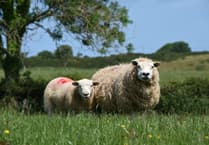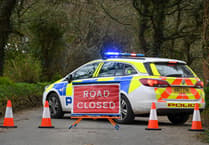Police are warning landowners and farmers that that there have been recent reports of poachers operating on Exmoor.
The alert came in a police update to members of the Exmoor Hill Farming Network.
Avon and Somerset Police said: "There have been a number of poaching incidents reported recently around the Dulverton/Hawkridge/Ashwick areas.
"Please report any ongoing incidents via 999. If non urgent, via 101 or the Avon & Somerset website. Your information helps us to assess where the incidents are happening and to take the appropriate action."
Illegal poaching on Exmoor, which has the largest concentration of red deer in England, has been an increasing problem in recent years.
Organised gangs were suspecting of taking large numbers of animals to supply unscrupulous dealers, butchers and restaurants.
The problem appeared to reduce during the Covid lockdown, but in March last year, Devon and Cornwall Police reported that poaching of deer continued to be a problem across the moor.
The force said in a statement: "Poaching continues to be a problem cross the whole of Exmoor, both Devon and Cornwall police and Avon and Somerset Police alone with other agencies are working together to combat this distasteful activity.
"Please remember THIS IS A CRIME and we need to know about EVERY Deer that has been taken/poached from land without permission or at night."
The latest update about poaching on Exmoor came in the Exmoor Hill Farming Network's February newsletter.
In a similar incident in the Chew Valley in Somerset at the end of January, the force said it had seen an increase in reports of poaching and illegal hunting.
A spokesperson said they were working with the force Rural Affairs Unit to target the activity and provide support for landowners.
The force says anyone concerned about wildlife crime in their area or have witnessed a crime against wildlife can report it online, by calling 101 or in person at a police station.
Examples of wildlife crime include:
Hare coursing or hunting;
Fox hunting;
Deer poaching;
Fish poaching;
Badger persecution – including baiting, snaring, shooting, and disturbance of setts;
Bat persecution;
Egg theft or collection;
Bird of prey persecution – through poisoning, trapping, shooting, disturbance of nest or theft of chicks;
Trade-in ivory, tortoises, rhino horn and other protected species covered by the Convention on International Trade in Endangered Species of Wild Fauna and Flora (CITES);
Non-registration of certain birds and animals that require licensing through the Department for Environmental Food and Rural Affairs (DEFRA) or the Animal and Plant Health Agency (APHA) if kept in captivity or sold.





Comments
This article has no comments yet. Be the first to leave a comment.